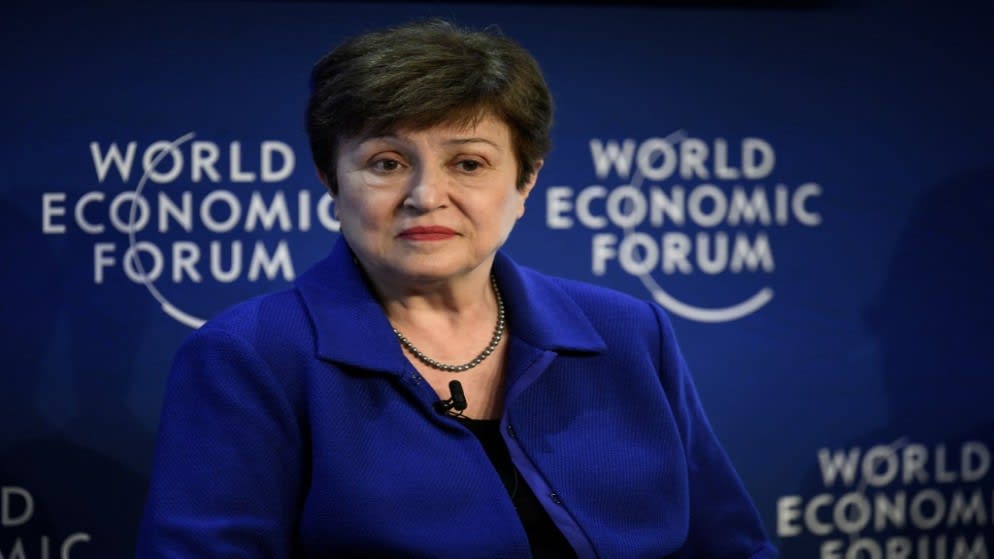The International Monetary Fund lowers global growth forecasts.
April 23, 2025121 ViewsRead Time: 2 minutes

Font Size
16
The International Monetary Fund has announced a reduction in its projections for global economic growth over the current and next years, warning of the impact of trade tensions on global growth and inflation paths.
IMF Managing Director Kristalina Georgieva emphasized that "the priority for the global economy now is to resolve trade disputes," noting that the IMF is working on enhancing its mechanisms, including monitoring national economies, redesigning lending programs, and their terms.
She added that the IMF is studying the experiences of countries that frequently resort to its programs, such as Argentina, Egypt, and Pakistan, as well as evaluating its role within the global financial safety net to enhance cooperation with other parties.
Structural Reforms and Debt Transparency
Georgieva explained that the "new economic agenda" will focus on structural reforms to boost growth, giving a larger role to the private sector, emphasizing the need for the IMF to be "more effective and transparent in managing debt restructuring operations," while improving financial data transparency.
She warned that developing countries and fragile economies have limited margins to face global economic challenges, promising that the IMF will enhance technical support for these countries in public finance issues and debt management.
Challenges of Digital Currency
Georgieva also addressed digital currencies, saying: "They are a reality, and the question now is how to reduce their risks," indicating the need for regulatory controls in this rapidly growing sector.
This statement comes amidst global economic growth slowdown and escalating financial challenges, requiring the IMF and the international community to seek proactive solutions.